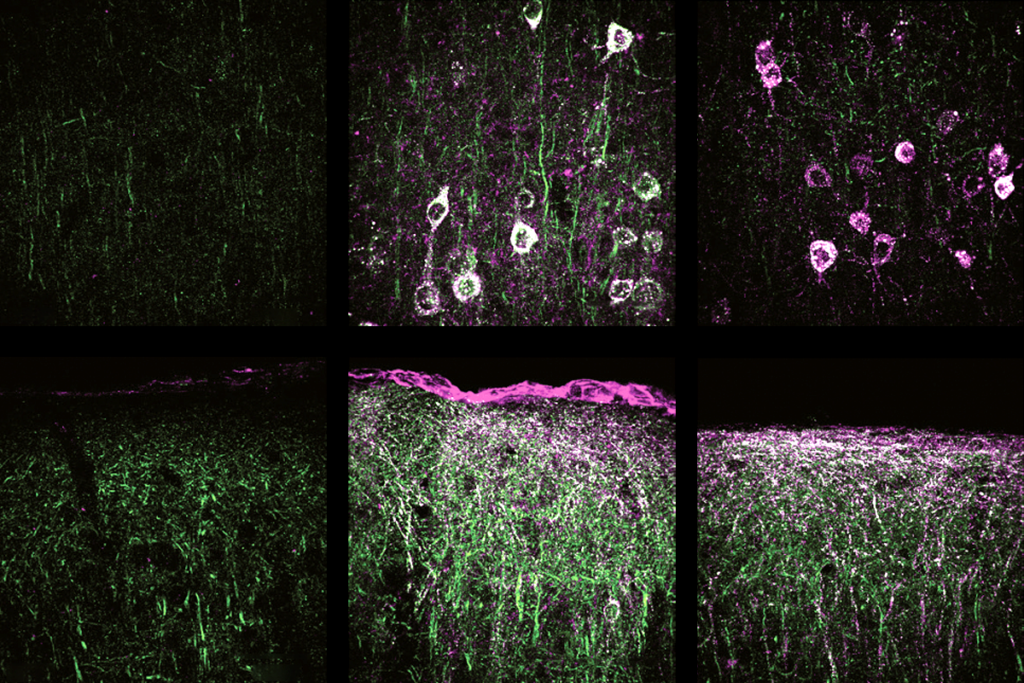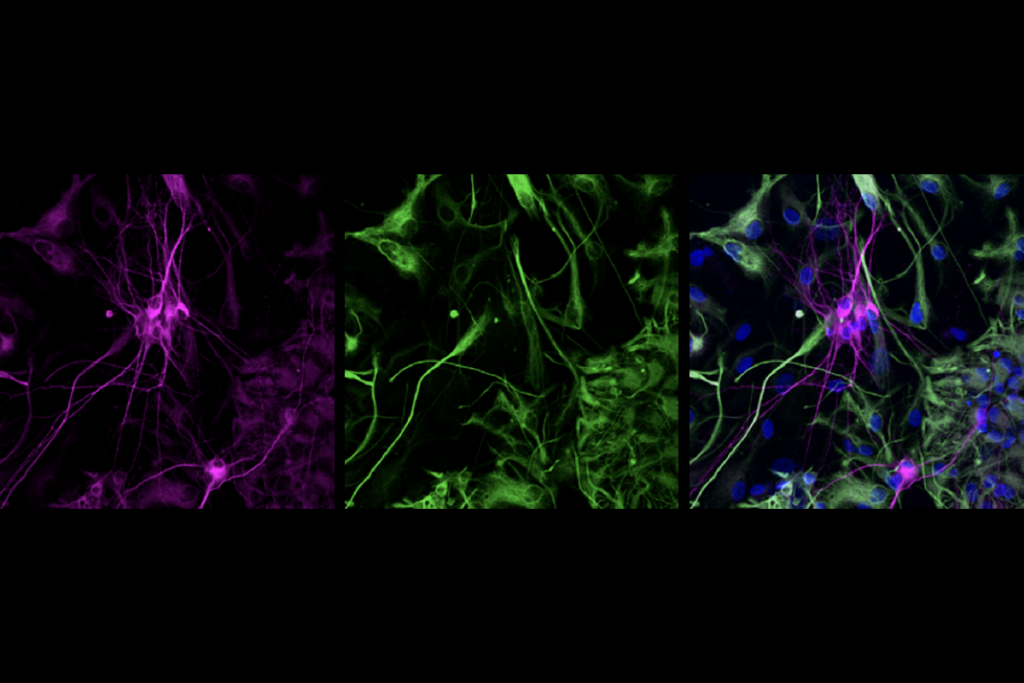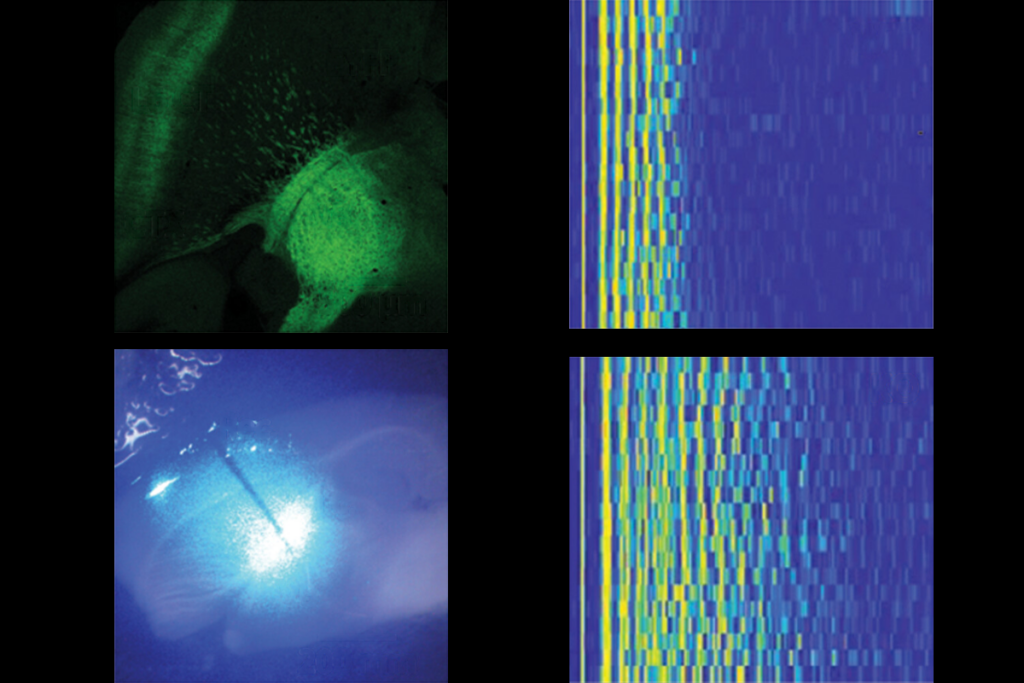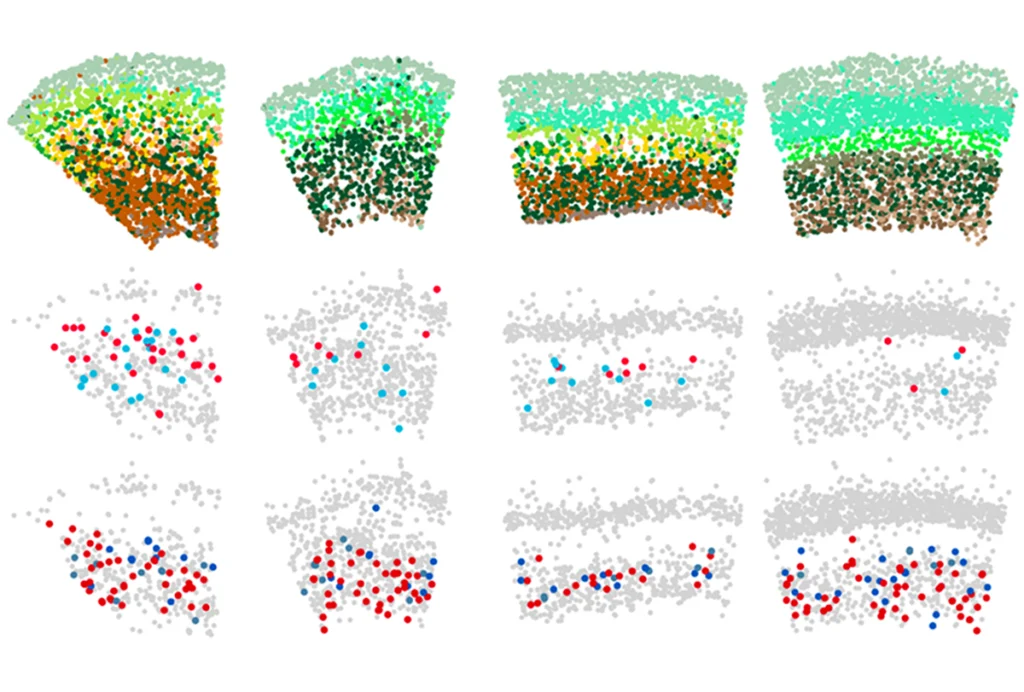Epilepsy
Recent articles
New organoid atlas unveils four neurodevelopmental signatures
The comprehensive resource details data on microcephaly, polymicrogyria, epilepsy and intellectual disability from 352 people.

New organoid atlas unveils four neurodevelopmental signatures
The comprehensive resource details data on microcephaly, polymicrogyria, epilepsy and intellectual disability from 352 people.
Gene replacement therapy normalizes some traits in SYNGAP1 model mice
The first published virus-based gene therapy for SYNGAP1 deletion yields benefits despite the gene’s long length and complexity.

Gene replacement therapy normalizes some traits in SYNGAP1 model mice
The first published virus-based gene therapy for SYNGAP1 deletion yields benefits despite the gene’s long length and complexity.
Boosting SCN2A expression reduces seizures in mice
A modified form of CRISPR amps up expression of the gene—a strategy that could apply to other gene variations linked to autism.

Boosting SCN2A expression reduces seizures in mice
A modified form of CRISPR amps up expression of the gene—a strategy that could apply to other gene variations linked to autism.
Sensory gatekeeper drives seizures, autism-like behaviors in mouse model
The new work, in mice missing the autism-linked gene CNTNAP2, suggests a mechanism to help explain the overlap between epilepsy and autism.

Sensory gatekeeper drives seizures, autism-like behaviors in mouse model
The new work, in mice missing the autism-linked gene CNTNAP2, suggests a mechanism to help explain the overlap between epilepsy and autism.
Expediting clinical trials for profound autism: Q&A with Matthew State
Aligning Research to Impact Autism, a new initiative funded by the Sergey Brin Family Foundation, wants to bring basic science discoveries to the clinic faster.

Expediting clinical trials for profound autism: Q&A with Matthew State
Aligning Research to Impact Autism, a new initiative funded by the Sergey Brin Family Foundation, wants to bring basic science discoveries to the clinic faster.
Split gene therapy delivers promise in mice modeling Dravet syndrome
The new approach overcomes viral packaging limitations by delivering SCN1A piecemeal and stitching it together in target cells.

Split gene therapy delivers promise in mice modeling Dravet syndrome
The new approach overcomes viral packaging limitations by delivering SCN1A piecemeal and stitching it together in target cells.
Organoids and assembloids offer a new window into human brain
These sophisticated 3D cultures reveal previously inaccessible stages of human brain development and enable the systematic study of disease genes.

Organoids and assembloids offer a new window into human brain
These sophisticated 3D cultures reveal previously inaccessible stages of human brain development and enable the systematic study of disease genes.
New catalog charts familial ties from autism to 90 other conditions
The research tool reveals associations stretching across three generations.

New catalog charts familial ties from autism to 90 other conditions
The research tool reveals associations stretching across three generations.
As circuits wire up, interneurons take cues from surrounding cells
The inhibitory cells’ development, diversity and abundance in the cortex is directed in part by pyramidal cells, a new preprint suggests.

As circuits wire up, interneurons take cues from surrounding cells
The inhibitory cells’ development, diversity and abundance in the cortex is directed in part by pyramidal cells, a new preprint suggests.
Tail of hippocampus may be hub for seizures in mice and people
This little-studied subregion, called the fasciola cinereum, could be a new surgical target for people with treatment-resistant epilepsy.

Tail of hippocampus may be hub for seizures in mice and people
This little-studied subregion, called the fasciola cinereum, could be a new surgical target for people with treatment-resistant epilepsy.
Explore more from The Transmitter
Single gene sways caregiving circuits, behavior in male mice
Brain levels of the agouti gene determine whether African striped mice are doting fathers—or infanticidal ones.

Single gene sways caregiving circuits, behavior in male mice
Brain levels of the agouti gene determine whether African striped mice are doting fathers—or infanticidal ones.
Inner retina of birds powers sight sans oxygen
The energy-intensive neural tissue relies instead on anaerobic glucose metabolism provided by the pecten oculi, a structure unique to the avian eye.

Inner retina of birds powers sight sans oxygen
The energy-intensive neural tissue relies instead on anaerobic glucose metabolism provided by the pecten oculi, a structure unique to the avian eye.
Neuroscience needs single-synapse studies
Studying individual synapses has the potential to help neuroscientists develop new theories, better understand brain disorders and reevaluate 70 years of work on synaptic transmission plasticity.

Neuroscience needs single-synapse studies
Studying individual synapses has the potential to help neuroscientists develop new theories, better understand brain disorders and reevaluate 70 years of work on synaptic transmission plasticity.